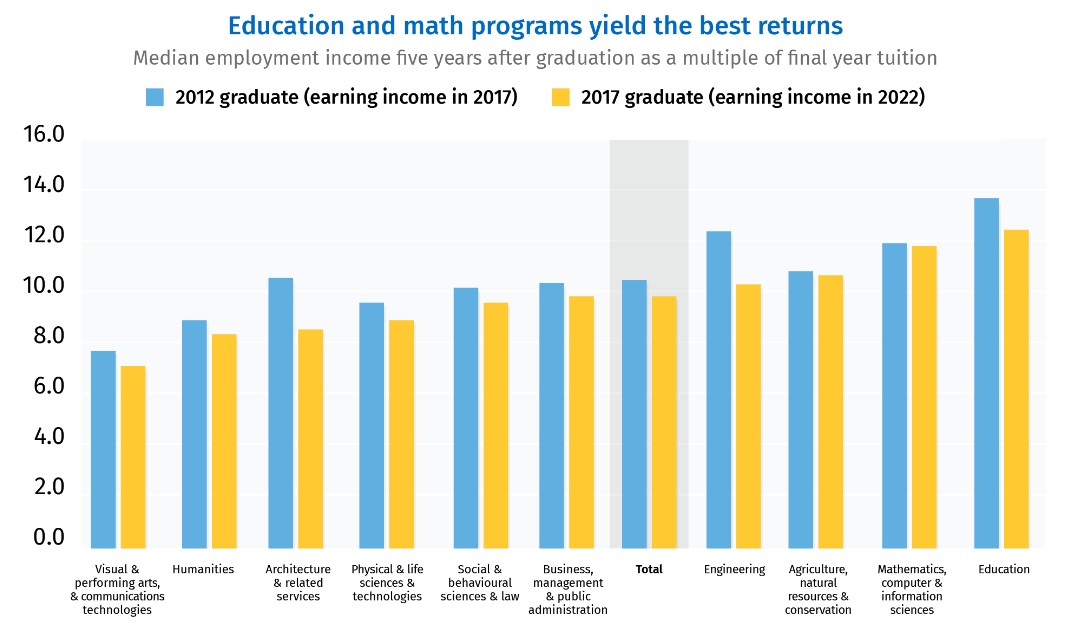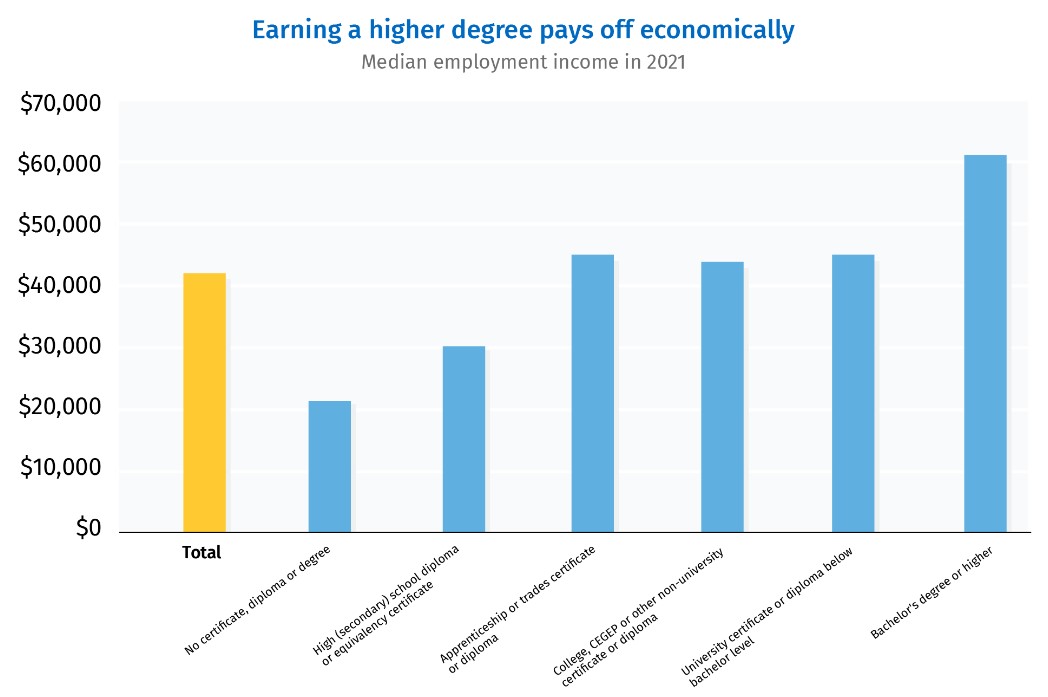Income growth not keeping up with university tuition fee increases, finds RBC

University graduates seem to be getting a lower return on investment post-graduation, according to a recent report.
The rising cost of tuition in Canada has outpaced median income growth for post-secondary graduates five years after they completed an undergraduate university degree, reports the Royal Bank of Canada (RBC).
After adjusting for inflation, tuition rose 12 per cent between 2012 and 2017 for all undergraduate studies. Meanwhile, the median income for graduates rose just four per cent in the same period, RBC notes.
The gap is most pronounced among graduates of architecture and related sciences and engineering.
Median incomes five years after graduation in 2022 were 8.6 times more than tuition costs in the final year of study for architecture and related sciences, down from the 2017 ratio of 10.6 times higher than students’ final year of tuition in 2012.
Meanwhile, among engineering graduates, the median income five years after graduation dropped to 10.2 times final tuition year (2017 graduates earning in 2022), from 12.3 times final tuition year (for 2012 graduates earning in 2017).
Previously, over 3,000 eligible employees in Canada signed up to participate in Amazon’s Career Choice in 2023, a program that provides workers up to 95 per cent of tuition and reimburses fees for book costs, according to the company.

Source: Royal Bank of Canada (RBC)
“It’s worth noting that median incomes for engineering graduates are still among the highest of undergraduate degree holders – and (relative to final year tuition) provide a more generous return to tuition investment than most programs,” say Rachel Battaglia and Abbey Xu, economists at RBC, in their report.
What is the disadvantage of a degree?
Still, a university degree pays, according to RBC.
“University degree holders have and continue to earn higher wages than individuals with lower education attainment,” say the economists.
Holders of a bachelor’s degree or higher educational attainment had the highest median income in 2021 at $61,600 – 44 per cent higher than the overall median income in the sample, according to the report.

Source: Royal Bank of Canada (RBC)
Individuals with any form of post-secondary education below a bachelor’s degree, including university certificates or diplomas, see a notable increase in median income to $45,600 – 51% higher than those with a high school diploma.
“However, it is worth noting that for those who obtained apprenticeship or trade certificates, the median income is $45,200, just marginally higher than the $44,800 earned by those with a college diploma or CEGEP certificate. This slight difference speaks to the competitive earning potential of apprenticeship and skilled trades programs,” says Battaglia and Xu.
With generative artificial intelligence (GenAI) and other technological advancements coming into the picture, it’s highly important for employers to help workers develop new skills, according to one expert.




